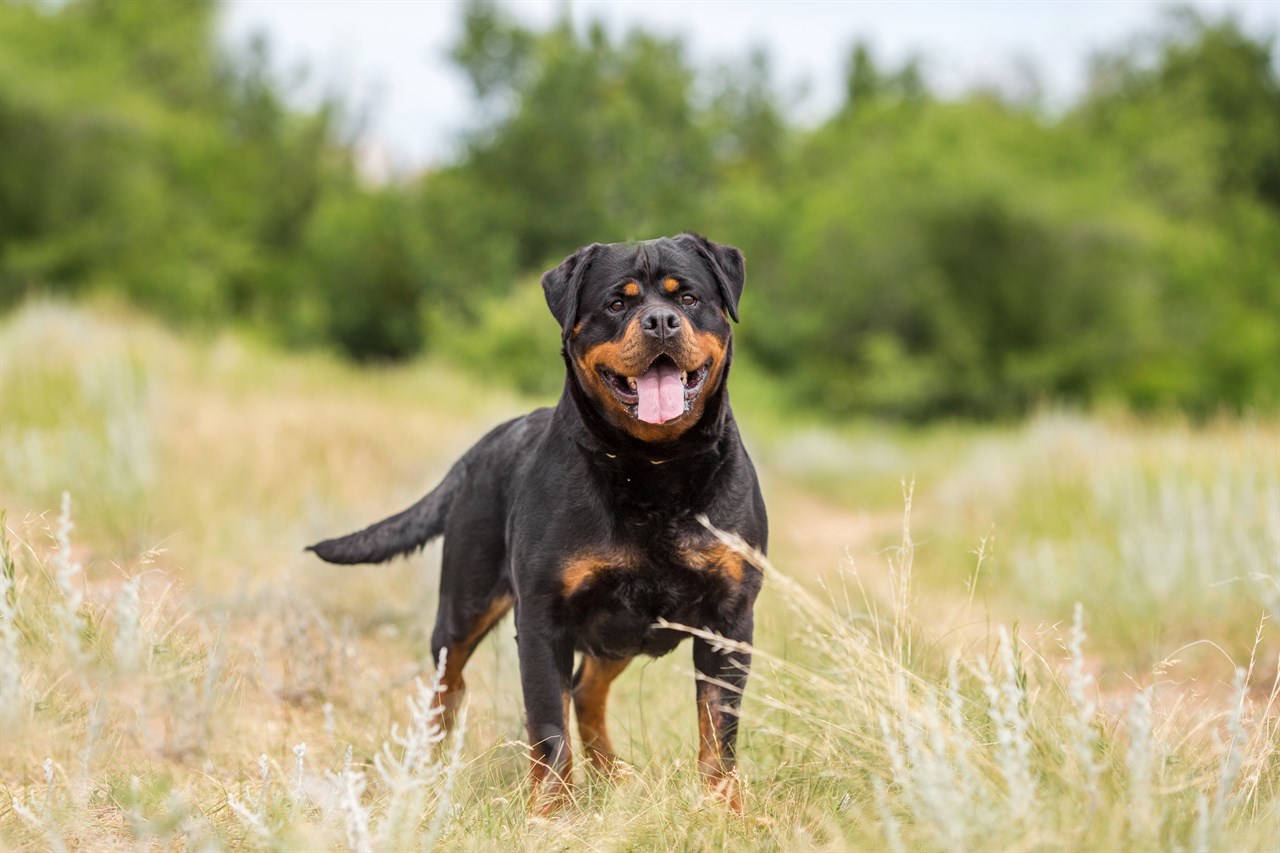Toilet Training a Rottweiler: Tips and Guidance

Toilet training, also known as housebreaking or potty training, is a fundamental aspect of raising a well-behaved and well-adjusted Rottweiler puppy. These intelligent and loyal dogs are generally eager to please, making them relatively receptive to training. However, like all breeds, successful toilet training requires patience, consistency, and positive reinforcement. Here are the key steps for toilet training a Rottweiler.
Start Early
Begin toilet training as soon as you bring your Rottweiler puppy home, typically around 8-12 weeks of age. Younger puppies have smaller bladders and shorter attention spans, so frequent trips outdoors are necessary.
Establish a Routine
Create a consistent schedule for feeding and bathroom breaks. Rottweilers thrive on routine, so feeding them at set times will help you predict when they'll need to relieve themselves.
Choose a Designated Area
Select a specific spot outdoors where you want your Rottweiler to do its business. Use the same area consistently to reinforce the association.
Use Positive Reinforcement
Reward your Rottweiler with praise, treats, or toys immediately after they eliminate in the designated area. Positive reinforcement encourages them to repeat the behaviour.
Supervise and Anticipate
Keep a close eye on your puppy when they are indoors and watch for signs like sniffing, circling, or whining, which may indicate the need to go outside. If you notice these cues, take them out immediately.
Regular Outdoor Trips
Take your Rottweiler outside frequently, especially after eating, waking up, or playing. This reduces the likelihood of accidents indoors.
Accidents Happen
Be prepared for accidents during the training process. Do not punish your Rottweiler for accidents; instead, clean up the mess promptly and without scolding.
Consistency is Key
Stick to the same commands and cues when it's time to go outside. For example, use phrases like "go potty" or "do your business" consistently.
Be Patient
Toilet training can take time, and every puppy learns at their own pace. Do not get frustrated or discouraged; maintain a positive and patient attitude.
Gradual Freedom
As your Rottweiler becomes more reliable with outdoor elimination, gradually allow them more freedom inside the house. Start with limited access and increase it over time.
Frequently Asked Questions
Are Rottweilers easy to train?
Rottweilers are known for their intelligence and eagerness to please, making them relatively trainable. However, they can also be strong-willed and independent at times. Consistent, positive reinforcement-based training methods work best with this breed.
Will an untrained Rottweiler protect you?
While Rottweilers have a natural protective instinct, an untrained dog may not reliably or effectively protect you. Proper training and socialisation are essential to ensure that your Rottweiler responds appropriately to perceived threats and behaves predictably in various situations. An untrained dog may exhibit aggressive behaviour without discernment, which can lead to problems.
Rottweiler puppies for sale
- Find Rottweiler puppies for sale in ACT
- Find Rottweiler puppies for sale in NSW
- Find Rottweiler puppies for sale in NT
- Find Rottweiler puppies for sale in QLD
- Find Rottweiler puppies for sale in SA
- Find Rottweiler puppies for sale in TAS
- Find Rottweiler puppies for sale in VIC
- Find Rottweiler puppies for sale in WA